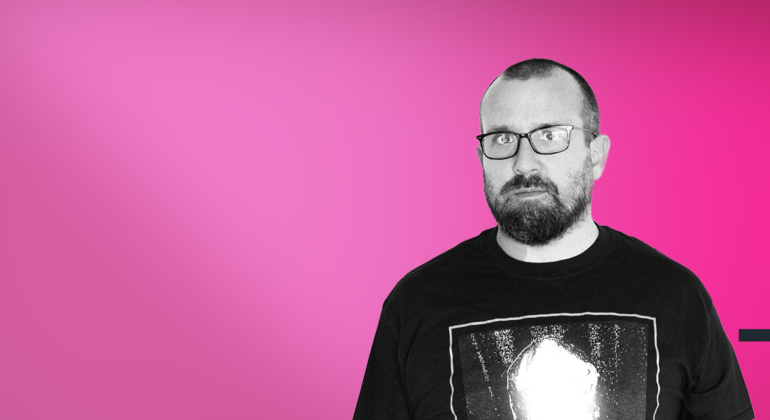At Kiterocket, we’re on a mission to kick childhood cancer’s ass. But since we are not doctors, (nor do we play them on TV), we focus on making a difference by raising awareness and money to help fund those who are. We began our quest in 2015, by supporting the efforts of G1ve A Buck Fund to fund “kid-size cures” (a term we coined). Additionally, this year, we partnered with 3D InCites, a content platform for the semiconductor industry, to support its annual awards program, the proceeds from which were earmarked for the iMAPS Microeletronics Foundation to support STEM education; and Phoenix Children’s Hospital, for its childhood cancer research program.
 Thanks to the generosity of a number of semiconductor companies (including our clients, KLA Tencor, Brewer Science, EMD Performance Materials, and aveni) we were beyond thrilled to present a $2,500 check to Phoenix Children’s to benefit its Center for Cancer and Blood Disorders (CCBD). We also spent some time talking with Tim Harrison, Vice President of Corporate Sponsorships and Special Events for the Phoenix Children’s Hospital Foundation to learn more about the latest achievements and plans, so we could help raise awareness about the critical work being done to make Phoenix Children’s war on childhood cancer one they’re sure to win.
Thanks to the generosity of a number of semiconductor companies (including our clients, KLA Tencor, Brewer Science, EMD Performance Materials, and aveni) we were beyond thrilled to present a $2,500 check to Phoenix Children’s to benefit its Center for Cancer and Blood Disorders (CCBD). We also spent some time talking with Tim Harrison, Vice President of Corporate Sponsorships and Special Events for the Phoenix Children’s Hospital Foundation to learn more about the latest achievements and plans, so we could help raise awareness about the critical work being done to make Phoenix Children’s war on childhood cancer one they’re sure to win.
The good news is survival rates are improving, despite the rising numbers of new cancer-specific diagnoses at Phoenix Children’s – 300 children in 2017 alone, which increased the number of outpatient visits of the course of the year from 22k to 24K. The not-so-good news is most treatments for childhood cancers used today were initially developed for adults but have been approved for use in children. Some of these have lasting side effects that impact the child’s life far into adulthood.
The goal is to treat kids like kids by working with pediatric specialists and develop kid-size cures that are less invasive and result in better patient outcomes. To this end, under the leadership of its new Division Chief Dr. Cynthia Wetmore, Phoenix Children’s CCBD has set out to make the Hospital a destination medical center for children battling cancer and blood disorders. Through clinical trials for cutting-edge therapies, a brand-new outpatient clinic and infusion center staffed with leaders in pediatric oncology and hematology research and subspecialties, as well as collaborative research with other cancer centers of excellence through consortia and partnerships, Phoenix Children’s is well on its way.
While her clinical area of focus is providing care for children with central nervous system tumors, Dr. Wetmore brings more than two decades of basic science research experience to the design and conduct of molecularly-based therapeutic protocols for children. During her fellowship at St Jude’s, for example, she founded the first multidisciplinary clinic for pediatric brain tumors. She is actively involved in bringing new, targeted agents to Phase I/II clinical trials for the treatment of children with cancer.
“Adult tumors are not the same as pediatric tumors,” explained Dr. Wetmore, in this YouTube video interview. “It is important that children are treated age appropriately. For example, while a 30-year-old, 40-year-old or 50-year-old adult may have a similar physiology, in children, a 6-month-old baby is dramatically different than a 2-year-old, who is dramatically different than a 16-year-old. We have rapidly changing body functions and developmental status, and it’s important to have a physician who is aware of those changes.” Moreover, she added that drugs developed for adult tumors may not be successful for children. For example, while a glioblastoma (a form of malignant brain tumor) from an adult or child looks the same under a microscope, it will not have the same pathways. Not only may treating the child with therapies designed for adults be unsuccessful, they can also cause developmental harm. These drugs need to be re-designed to reduce toxicity and kill the tumor cells while not harming normal cells, explained Dr. Wetmore.
A number of exciting new initiatives are now underway within the CCBD. In partnership with NantHealth, Phoenix Children’s is building a genomics lab for genome sequencing. “We can sequence a patient’s tumor and compare it against their normal DNA to understand what mutations are in the tumor,” explained Dr. Wetmore. “This fast-tracks our ability to fingerprint the tumor to better select the right drugs for treatment.”
Another partnership, this one with nearby Mayo Clinic Arizona, allows patients to receive proton pencil beam therapy, a more targeted and precise way of administering radiation therapy. It allows a higher dose of radiation to cancerous tumors and at the same time minimizes dosage to healthy tissue. This results in improved tumor control, fewer negative side effects and a better chance of long-term survival.
Previously, Phoenix Children’s patients who could benefit from the therapy had to travel to Houston or Boston for the extended course of treatment. Through a collaboration between Phoenix Children’s and Mayo Clinic Arizona, these patients are now receiving treatment locally as physicians at both hospitals work together to provide optimal treatment for each child. Cancer specialists at Phoenix Children’s are eager to work more closely with Mayo Clinic Arizona to provide the therapy to their patients here in the Valley and to study the effects long-term.
Many of these advancements have been made possible through the fund-raising efforts of the Phoenix Children’s Hospital Foundation. In addition to providing funds for treatment research, the organization makes it possible for underprivileged and uninsured pediatric patients to receive this cutting-edge treatment. The mantra is first, treat the child.
While battles are waged and won every day, the war against childhood cancer is far from over. September is Childhood Cancer Awareness month, and plans are already underway to recruit corporate partners to get involved. There are already a number of Phoenix companies, like Camelback VW, Mazda and Subaru, Dutch Bros. coffee, and others, who have agreed to run campaigns where they pledge a portion of their proceeds for the month. To learn more about how you can become involved with Phoenix Children’s, contact Tim Harrison.
Additionally, we invite you to support Kiterocket’s ongoing efforts to fund kid-size cures by donating to G1ve A Buck Fund, which supports not only Phoenix Children’s, but Strong Against Cancer via Seattle Children’s Hospital, and The Dana Farber Institute in Boston. Learn more here.


